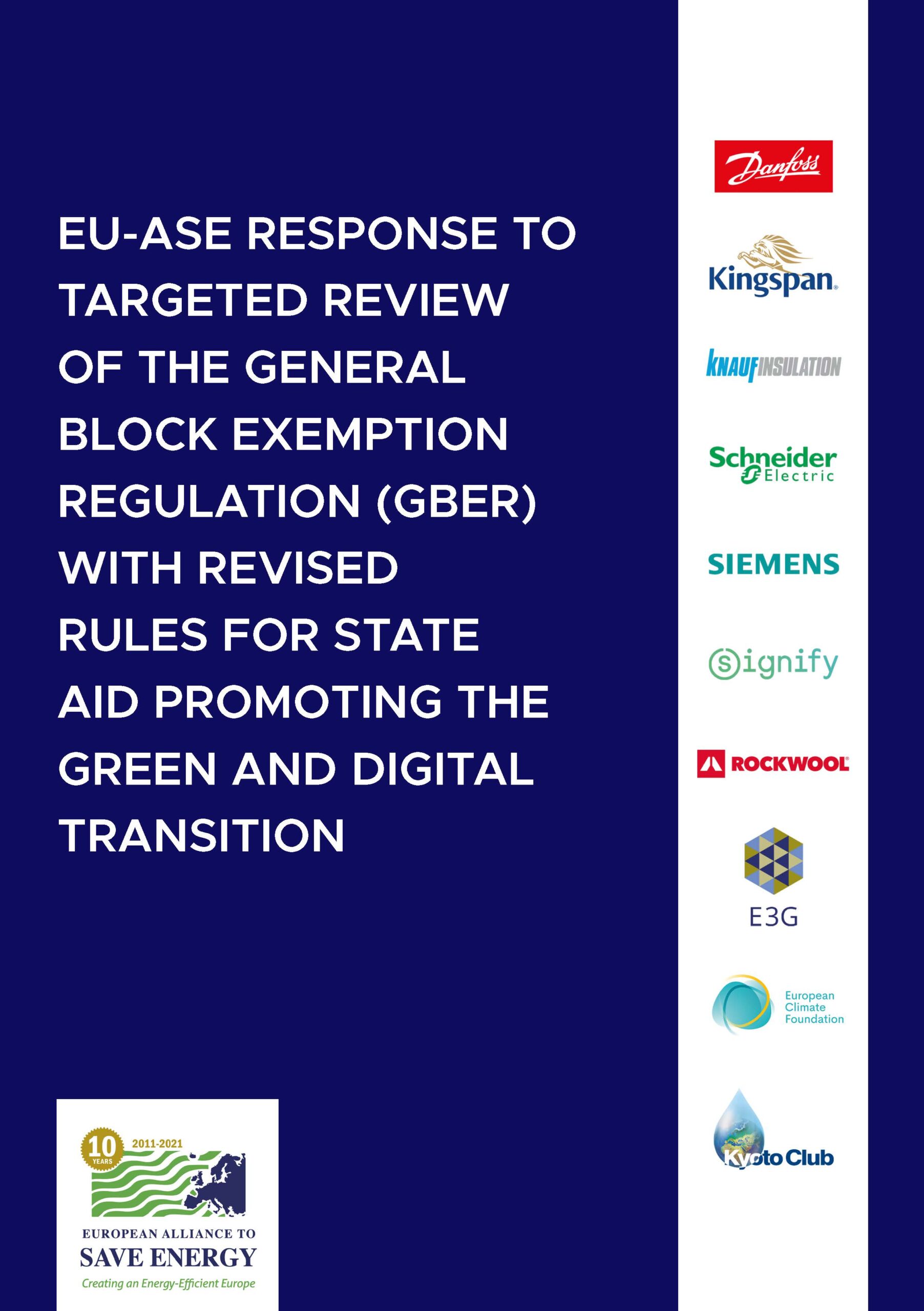
The European Green Deal target to reach climate neutrality by 2050 calls for unprecedented levels of public and private investments accompanied by deep reforms. In this context, well-designed State Aid schemes will be key to unlock investments and make the best use of public funds.
The European Alliance to Save Energy is happy to provide its feedback on the revised GBER. Energy efficiency is the bedrock of a decarbonised EU energy system: energy efficiency gains are essential to achieve the increased GHG emission target reduction of 55% by 2030 and full decarbonisation by 2050.
In its current form, the revised GBER offers some welcomed added flexibility for the application of state aid to energy efficiency projects. Energy efficiency is a precondition for a full integration of renewables and the phase out fossil fuels. Yet, in its current form the GBER does not provide the necessary level playing field with renewable energy sources and other energy supply measures. In particular the aid intensity levels for energy efficiency are lower and the rules on eligible costs are far more complex to apply.
EU-ASE therefore calls on the European Commission to:
1. Enshrine and enforce the “Energy Efficiency First principle” in the GBER
2. Level the playing field between energy efficiency measures and renewable energy sources (Art. 38 & 39 GBER)
3. Simplify cost eligibility and conditions for total cost eligibility (Art. 38)
4. Simplify the cconditions for the “incentive effect” (to favour the transition to MEPS)
5. Extend the scope of the Green Bonus (+ 15 points percentage) for high energy-efficiency projects
Download the full response
Download related response to the CEEAG
Read more in our paper: Boosting energy efficiency through the revision of State Aid rules
